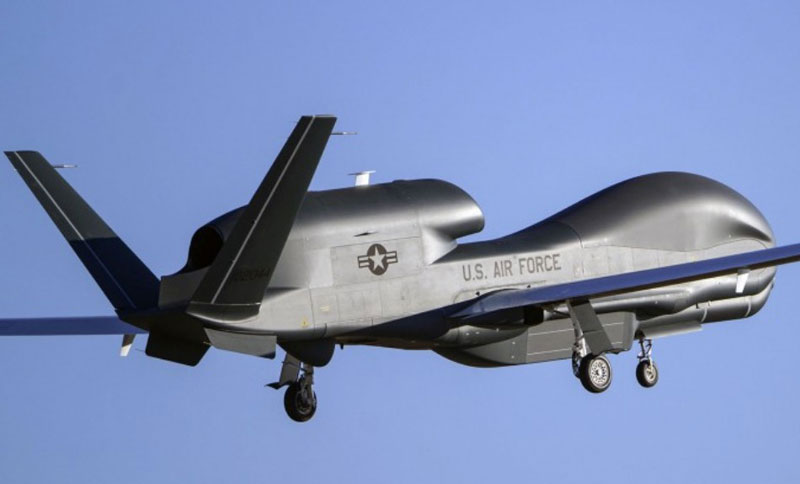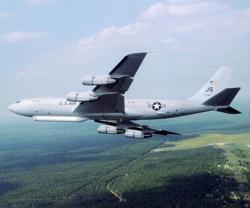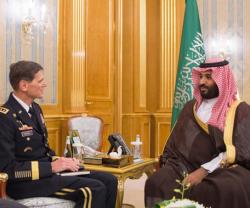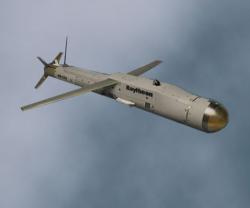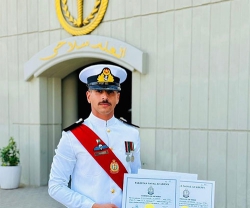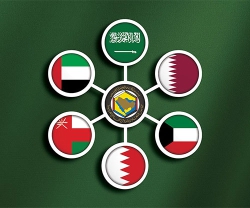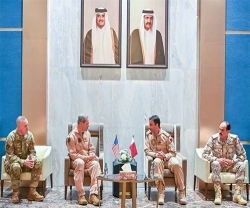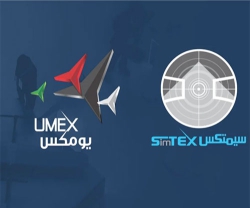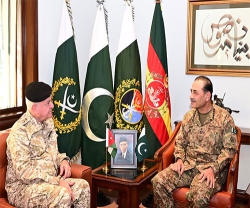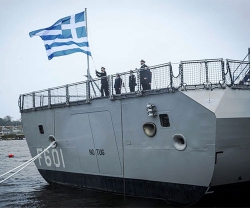NGC Demos Joint STARS, Global Hawk Interoperability
07.03.2013 North America
Northrop Grumman Corporation (NGC) recently completed a successful exchange of radar data during a flight test involving the U.S. Air Force's E-8C Joint Surveillance Target Attack Radar System (Joint STARS) and the RQ-4B Global Hawk Block 40 unmanned aircraft system. The demonstration was conducted Feb. 25.
The exchange is the first collaborative effort to stream ground moving target radar data from a Global Hawk Block 40 to a Joint STARS aircraft. Information can then be relayed from Joint STARS to ground forces.
“This is a significant leap forward in terms of possible capabilities for our warfighters,” said Bryan Lima, Joint STARS Program Director at Northrop Grumman.
“Findings showed increased precision, improved target tracking and the ability to extend the surveillance coverage area. By combining the capabilities of these platforms, we've unlocked increased battle management potential, not only by expanding coverage of the surveillance area, but also for compressing the targeting and attack decision chain for warfighters,” he added.
The flight successfully demonstrated the interoperability of both platforms to potentially improve and expand surveillance capabilities for deployed forces.
“Operators in the Joint STARS aircraft were able to use the Global Hawk as an adjunct sensor. We were able to display and use the Global Hawk's radar data on the Joint STARS platform to extend and improve the overall surveillance capabilities and utility of both platforms,” Lima added.
Joint STARS is an airborne battle management and command and control platform that conducts ground surveillance of fixed and moving ground targets to develop an understanding of the enemy situation and support location, tracking, targeting and attack operations.
Global Hawk carries a variety of intelligence, surveillance and reconnaissance sensor payloads that allow military commanders to gather imagery and use radar to detect moving or stationary targets on the ground. Capable of flying for more than 30 hours at a time at altitudes up to 60,000 feet, the system also provides airborne communications and information sharing capabilities to military units in harsh environments.
The exchange is the first collaborative effort to stream ground moving target radar data from a Global Hawk Block 40 to a Joint STARS aircraft. Information can then be relayed from Joint STARS to ground forces.
“This is a significant leap forward in terms of possible capabilities for our warfighters,” said Bryan Lima, Joint STARS Program Director at Northrop Grumman.
“Findings showed increased precision, improved target tracking and the ability to extend the surveillance coverage area. By combining the capabilities of these platforms, we've unlocked increased battle management potential, not only by expanding coverage of the surveillance area, but also for compressing the targeting and attack decision chain for warfighters,” he added.
The flight successfully demonstrated the interoperability of both platforms to potentially improve and expand surveillance capabilities for deployed forces.
“Operators in the Joint STARS aircraft were able to use the Global Hawk as an adjunct sensor. We were able to display and use the Global Hawk's radar data on the Joint STARS platform to extend and improve the overall surveillance capabilities and utility of both platforms,” Lima added.
Joint STARS is an airborne battle management and command and control platform that conducts ground surveillance of fixed and moving ground targets to develop an understanding of the enemy situation and support location, tracking, targeting and attack operations.
Global Hawk carries a variety of intelligence, surveillance and reconnaissance sensor payloads that allow military commanders to gather imagery and use radar to detect moving or stationary targets on the ground. Capable of flying for more than 30 hours at a time at altitudes up to 60,000 feet, the system also provides airborne communications and information sharing capabilities to military units in harsh environments.
Previous PostBoeing to Offer Inmarsat-4 Mobile Satcom Bandwidth
Latest news
Latest events
Doha International Maritime Defence Exhibition & Conference (DIMDEX 2026)
19 - 22 Jan 2026Doha - QatarUMEX – SimTEX
20 - 22 Jan 2026ADNEC Centre Abu Dhabi, - United Arab EmiratesWorld Defense Show (WDS) 2026
08 - 12 Feb 2026Riyadh - Saudi ArabiaSAHA EXPO International Defence & Aerospace Exhibition
05 - 09 May 2026İstanbul Expo Center - Turkey

